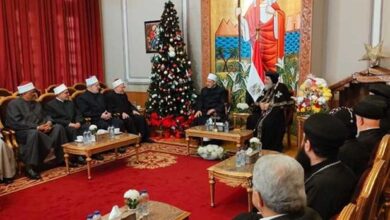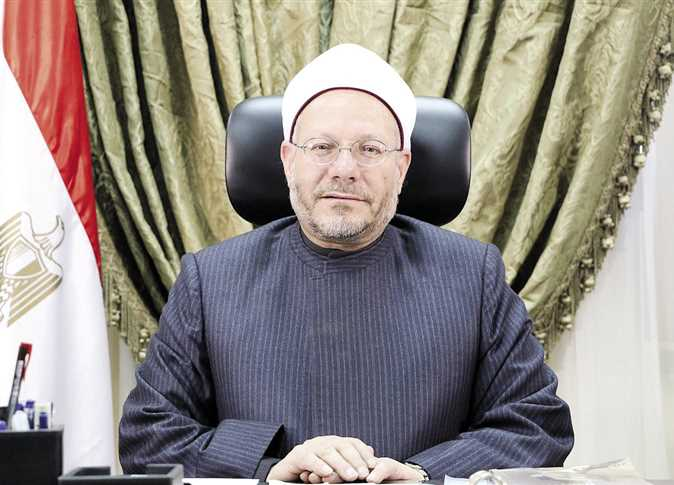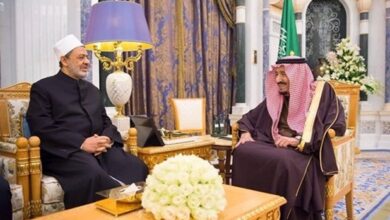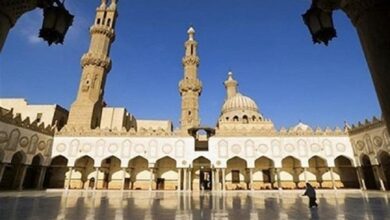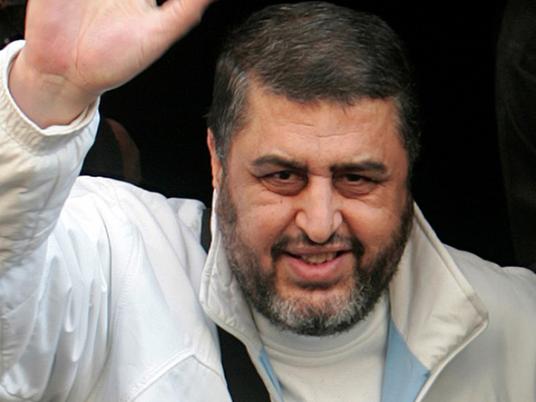
Despite previous assertions to the contrary, the Muslim Brotherhood has put forward a candidate for the upcoming presidential elections — a development that dominates Sunday's front pages in more ways than one. Having gone to press before the identity of the candidate was made public last night, Al-Ahram, Al-Wafd and Al-Tahrir all speculate on who the Brotherhood's Freedom and Justice Party (FJP) might nominate, with a headline in the latter paper asking, "will the Brotherhood nominate Mohamed Selim al-Awa?" The answer comes in the remainder of the nation's headlines: "Shater is the Brotherhood's presidential candidate," reads the red font across Al-Akhbar's frontpage, with an alternate title coming above the actual report: "The Khairat al-Shater surprise."
"The Brotherhood has defied all expectations," the state-owned paper reports, "by choosing their deputy supreme guide as their presidential hopeful." According to the paper, the organization's advisory body had initially "considered" not putting forward a presidential candidate from their own ranks. This decision, however, was "reversed following a majority vote to nominate Shater."
Al-Akhbar reports that, according to anonymous inside sources, the Brotherhood's decision was heavily influenced by the ruling Supreme Council of Armed Forces' refusal to allow the FJP free reign in the shaping of the new government. "SCAF rejected the FJP's plan to select all the members of the next cabinet, which would have been presided over by Mahmoud Morsy, one of the party's leading figures," Al-Akhbar reports, adding that this resulted in a seven-hour meeting, during the last hour of which it was determined that Shater would become the Brotherhood's official candidate.
Freedom and Justice — the FJP's daily paper, which comes with the slogan, "it's for everyone" — frames it slightly differently, with a headline indicating that the decision to nominate Shater was an attempt to save the revolution from a number of threats, such as "the insistence on a failed government," presumably made by others. Other threats included "calls for the dissolution of parliament," and a growing number of "feloul" candidates — or those loyal to the Mubarak regime — infiltrating the presidential race. It was these threats, the paper reports, that "pushed us to bear this historic responsibility."
Freedom and Justice offers little in terms of background information on Shater, and instead devotes its supposed reporting to documenting "a wide range" of reactions within the organization to this "historical development" (spoiler alert: they're all positive).
After remarking on his potential as a "man of the state with a plan to resuscitate Egypt in this upcoming period," the paper turns to other similar opinions of Shater. Mohamed Yousry, secretary general of the organization's rights and reform committee, stated that Shater was, unequivocally "the most appropriate, qualified and competent man for this esteemed position," while leading member Mahmoud Ezzat bent the rules of logic to conclude that "Shater's nomination is a risk, but a calculated one, as he will be a president of all Egyptians and not just of one sector of society." Meanwhile, the Brotherhood's head legal representative, Abdel Moneim Abdel Maksoud, made assurances that "there is no objection that can be made in terms of the legality of this decision."
FJP head Mohamed Morsy reiterated the many threats facing the "ongoing revolution" as the driving factor behind the group's decision to nominate their own presidential candidate, to act as a binding figure between the people, the armed forces and the government, i.e. the Brotherhood. Brotherhood Supreme Guide Mohamed Badie makes the same argument, before stating that the Brotherhood nominated Shater out of "a sense of national duty."
Optimism — or that other thing — can also be found in the Freedom and Justice paper's report announcing "the end of the constitutional crisis," which is hoped to be reached during a meeting to be held later today between the remaining political forces involved in the drafting of a new constitution — a process which has been heavily contested by separate political parties, several of whom have withdrawn. In the Freedom and Justice report, however, FJP member Khaled Mohamed attributes the delays in the process to the fact that "several parliamentary members are currently traveling abroad — such as Amr Hamzawy — and we are waiting for their return so that all political forces can be included."
The drafting of the constitution is also the subject of Al-Wafd's lead story, with the party paper claiming that the process is spelling out the potential downfall of the Brotherhood. "Public discontent is rapidly rising in response to the clear majority's [Islamists'] hold on the constituent assembly." The paper argues that the group's monopolization of the constitution drafting has led to calls of protest from the Al-Azhar Scholars Front and Egyptian churches, who have announced their outright rejection of the entire process thus far, with the further admonition that, in terms of religious authorities, Al-Azhar's input should be more of a priority than that of the individual Islamic parties, as it is the "center of religious guidance for all Muslims."
An anonymous spokesperson from the Sacred Council representing the nation's Orthodox, Anglican and Catholic churches, stated that they too are pulling out of the drafting process "in solidarity with Al-Azhar's stance."
In the same report the head of Al-Ahram Center for Social Studies, Nabil Abdel Fattah, insisted that the current parliament is "not qualified to write the constitution," further warning that allowing them to do so could lead to "a dysfunctional constitution the likes of which has never been seen in the history of all the world's constitutions."
In Al-Tahrir, Yasser Abdel Kader, head of the medical team treating former President Hosni Mubarak, responded to the latest rumors involving the toppled tyrant's death. "If Mubarak dies, everyone will be notified," he told the independent daily. "It will be big news that we wouldn't possibly be able to cover up."
Egypt’s papers:
Al-Ahram: Daily, state-run, largest distribution in Egypt
Al-Akhbar: Daily, state-run, second to Al-Ahram in institutional size
Al-Gomhurriya: Daily, state-run
Rose al-Youssef: Daily, state-run
Al-Dostour: Daily, privately owned
Al-Shorouk: Daily, privately owned
Al-Wafd: Daily, published by the liberal Wafd Party
Youm7: Daily, privately owned
Al-Tahrir: Daily, privately owned
Freedom and Justice: Daily, published by the Muslim Brotherhood's Freedom and Justice Party
Sawt al-Umma: Weekly, privately owned
Al-Arabi: Weekly, published by the Nasserist Party
Al-Nour: Official paper of the Salafi Nour Party


